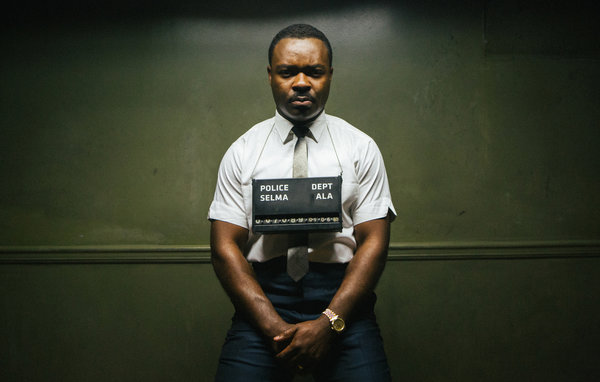Do Movies Have An Obligation To Always Get The Facts Right?

Should Hollywood feel obliged to get the facts right when it comes to films based on true stories or critical events in history?
The answer is a simple one: of course they should. But when it comes to producing dramatic art for the screen, it’s the “who’s” and the “why’s” that can complicate the issue.
First, the “who’s”—the directors, the screenwriters, the studio heads, and the audiences—each have their own set of expectations when it comes to making, selling, and watching a film. This is apparent now more than ever with the recent release of Ava DuVernay’s Martin Luther King, Jr. biopic, “Selma,” and the controversial Clint Eastwood Iraq war film, “American Sniper.”
READ MORE: Film Review: ‘American Sniper’
Both films have faced criticism about the historical accuracy of their depictions of their real-life counterparts being portrayed on screen, and while “Selma” has been lauded for DuVernay’s ambitious take on documenting a precise moment in history, “American Sniper” has largely been viewed as overtly “rewriting history” in a way that feels frighteningly close to the war propoganda films of yore.
As far as the “why’s” are concerned, here’s where it can get a bit more messy. Let’s play devil’s advocate for a moment in order to dismantle the issue: beyond the obvious reasons, why does it matter whether a film gets it “right” when it comes to history? And who decides whether or not the story, the dialogue, and the actors’ portrayals are “right”? The director? Historians? Audiences? The media?
Our movies have long been understood to have a tremendous amount of influence on the American psyche (not to mention a great deal of influence on international relations, as we saw with “The Interview” debacle) in terms of political, social and cultural views, as evidenced during one of Hollywood’s darkest periods when the HUAC (House on Un-American Activities Committee) investigated and ultimately blacklisted filmmakers and screenwriters when Cold War-era fears over the spread of communism in popular culture—particularly in film—loomed large. More recently, for example, Oliver Stone’s “JFK” sparked so much debate after it was released that Congress passed the 1992 President John F. Kennedy Assassination Records Collection Act.
READ MORE: North Korea: Seth Rogen Movie ‘The Interview’ is an Act of War
Because every film—documentary or narrative—carries with it such power to move us, there’s a tremendous amount of responsibility for both the creator and consumer of films to delicately balance the need for aesthetic pleasure, artistic achievement, commercial success, and historical truth. That power to be moved can be used for good or evil, or even worse, it can be used in the name of art for evil (for example, in extreme cases, as war propaganda) such that further confusion ensues about the “who’s” and “why’s” and interests involved.
In popular culture, it’s not only about accuracy, but about ascribing meaning and value to the facts, and collectively figuring out how we should situate them in our personal and societal histories. It’s always important for filmmakers to get the facts right, but it is absolutely critical when it comes to representations of war, gender and race (particularly for those who have typically been underrepresented in popular films), and shedding light on injustice that lives on today. In these cases, we have to get it right.
The danger of stretching the truth about the past is that false historical narratives get a new lease on life, and they also get a chance to give birth to new, possibly even more insidious misrepresentations of the present and future.
On the other end of the spectrum, which is where I prefer to dwell most of the time (and encourage active, engaged, critical moviegoers to dwell with me), is in the space where films can reach out and empower us as viewers to be the truth—and the change—in the story we’re telling right now.
By taking an active part in filmgoing—whether its through fundraising or crowdfunding smaller budget films, researching the important people and facts from the past to become more informed viewers, or by supporting the filmmakers who are making important films—we’re getting conversations started. But that’s only the first step.
As hip hop artist Common pointed out in his recent Golden Globe acceptance speech so eloquently, the time is now. These issues of injustice continue today.
Not happy with the historical portrayals or facts or (mis)representations?
It’s on all of us to change the way the real story ends.
Reach Staff Reporter Kristin Marguerite Doidge here or contact her on Twitter here.



